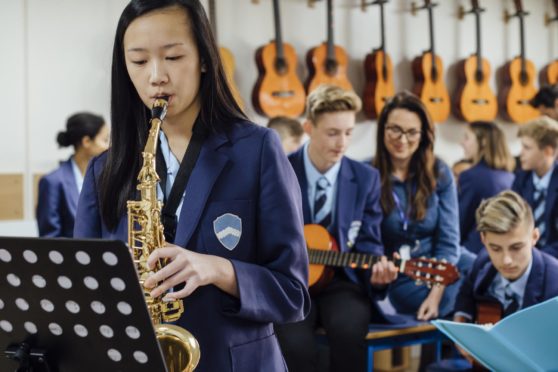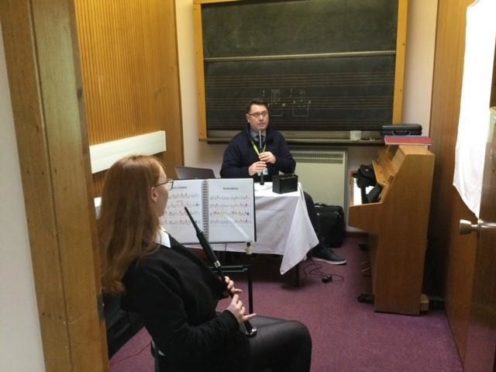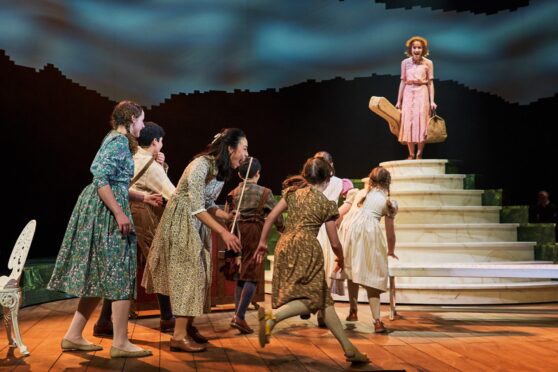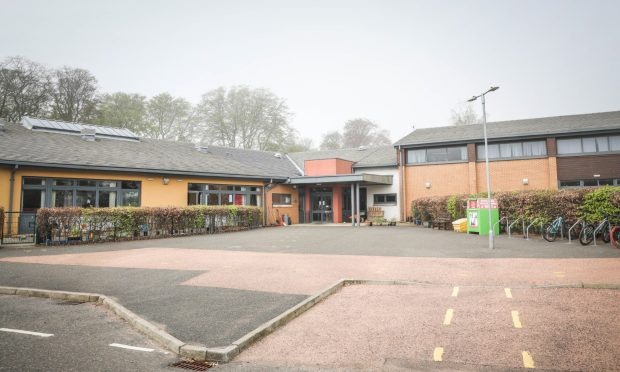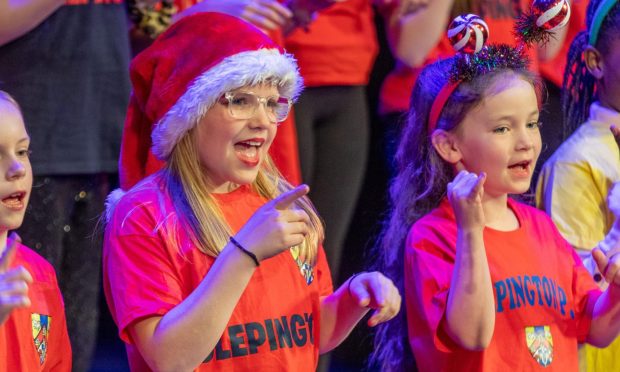Face-to-face music lessons have been halved for pupils in Dundee as coronavirus limits the number of schools instructors can visit each week.
Scottish Government guidance limits the activity in schools unless a safe two metre distance can be maintained and instruments are not shared.
Wind, brass and singing instruments are not permitted at all because of the respiratory aerosols exhaled during playing.
The city’s instrumental music service would see pupils at least once a week before the pandemic.
But their movement around the city has been limited and they can now only visit one school per day which means lessons have been cut back to once a fortnight, supplemented with online ‘blended learning’.
A similar picture is present across Scotland as the largest teaching union EIS expressed concerns travel restrictions faced by teachers and the impact limited playing time would have on pupils with upcoming exams.
They still need to be preparing for the exam climate and when the time comes that we’re able to start physically teaching again it means pupils haven’t lost their skills.
Derek Potter.
Despite the setbacks, tutors are developing creative ways to ensure pupils can now continue learning an instrument.
The purchase of electronic chanters, which mimic the sound of pipes using finger movements, has enabled bagpipe tutor Derek Potter to continue teaching.
The aim, he says, is to teach pupils the key elements of playing while they’re unable to blow into the instrument.
“The electronic chanter has allowed us to carry on teaching and helping pupils which is really important to pupils who will be doing exams,” he said.
“They still need to be preparing for the exam climate and when the time comes that we’re able to start physically teaching again it means pupils haven’t lost their skills.
“We’re making sure that these instruments can be sterilised after each use and we’re following the rules with ventilated rooms and two metre distances between instructor and pupil.
“We’re just trying to engage with the children and keep them motivated amongst the fact that they can’t physically play in schools.”
Tutors are also supporting pupils digitally on the week they’re unable to attend school by uploading tutorials and encouraging students to record their practice sessions at home.
Senior instructor Phil McGregor said the city’s music service is working hard to ensure pupils are not disadvantaged ahead of the 2021 exam diet.
He said: “Although things have changed for us, we’ve tried the best for our pupils. They still have a lot of contact with the instrumental team in Dundee and we feel that’s very important for their progress.”
Aside from pupils learning wind, brass and singing, pupils with exams are still receiving a lesson every week.
We hope the guidance for our wind and brass pupils will change very soon.
Phil McGregor.
He added: “We hope the guidance for our wind and brass pupils will change very soon and if not we’ll try and bring in some online lessons so we can see them in school and teach them via video conference if we need to.”
Primary school pupils are also focussing on rhythm and composition instead of learning an instrument this year.
A Scottish Government spokesperson said: “Guidance produced by Education Scotland, based on scientific advice from the advisory sub-group on education and children’s issues, encourages a precautionary approach to the learning and teaching of music during the pandemic for public health reasons.
“Local authorities and schools should exercise their judgement when implementing this guidance, to ensure the safety and wellbeing of their children, young people and staff, and taking into account local circumstances as well as the positive impact that learning a musical instrument can have on wellbeing and attainment.
“The advice and guidance is being kept under review and will be updated in response to changing circumstances and the latest scientific evidence.”
